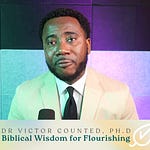You slept eight hours. You cleared your calendar. You even booked a weekend getaway. So why do you still feel bone-tired?
The truth is, rest isn’t just about sleep. And for many of us, the kind of rest we’re reaching for doesn’t match the kind of exhaustion we’re actually carrying.
In a world driven by productivity metrics and burnout culture, many are discovering that the root of their fatigue is more complex than physical depletion. According to Saundra Dalton-Smith, a physician and researcher, the real issue is unbalanced rest. Her framework, The 7 Types of Rest, has reshaped how thousands understand fatigue—and why conventional self-care often falls short.
A closer look at the seven ways we need to rest:
Physical Rest: Yes, this includes sleep. But it also involves passive rest (napping, sleeping) and active rest (stretching, deep breathing, gentle movement). It’s about restoring the body, not just shutting it down.
Mental Rest: Ever lie in bed tired but wired? That’s your brain begging for a break. Mental rest is space from constant decision-making, problem-solving, and information overload.
Emotional Rest: This is the rest we feel when we can be our whole selves—no masks, no pretending. It’s the gift of saying, “I’m not okay,” and not being judged for it.
Social Rest: Not all time with people is draining—but some definitely is. Social rest means choosing relationships that energize rather than exhaust, and sometimes, it means choosing solitude.
Sensory Rest: The constant hum of screens, alerts, lights, and background noise takes a toll. Sensory rest invites silence, stillness, and nature to recalibrate our senses.
Creative Rest: This is about feeding the soul with beauty—through art, music, stories, or the natural world. It’s what helps rekindle inspiration when life feels dull or routine.
Spiritual Rest: Perhaps the most overlooked, this kind of rest is rooted in connection—with God, with meaning, with something transcendent. It’s the rest that says, “You are not alone, and your life has purpose.”
Once you see rest this way, it’s hard to unsee it. Suddenly, that vague ache of tiredness has a name—and a remedy.
This reimagining of rest isn’t just about recovery; it’s about flourishing. To flourish is not to cram more into your schedule, but to live with intention, depth, and wholeness. And that starts by learning how to truly rest—rhythmically, not reactively.
So if you’re tired in a way that sleep won’t fix, maybe you don’t need more hours in bed. Maybe you need a different kind of rest altogether. One that restores not just your body, but your spirit.
Because real rest isn’t a luxury. It is what makes everything else possible.












Share this post